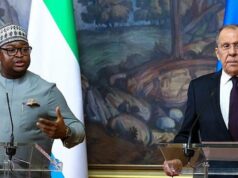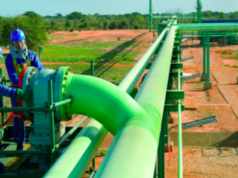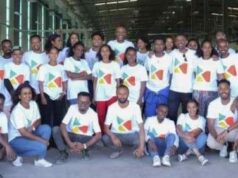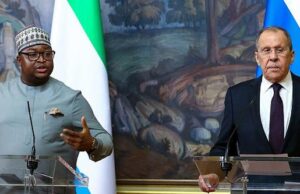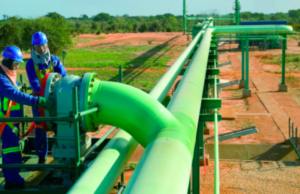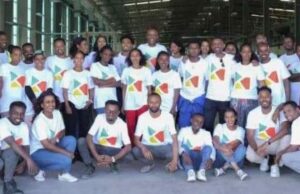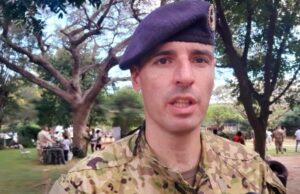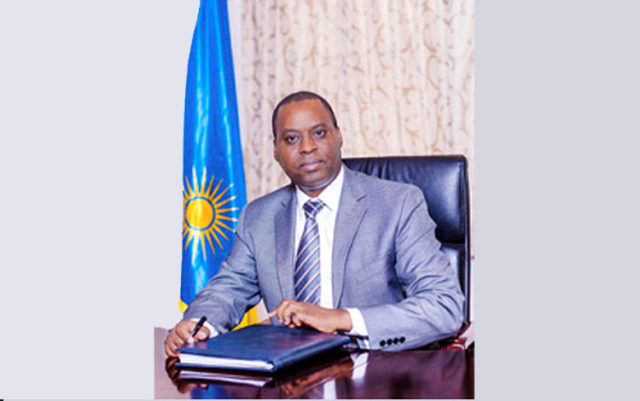
Rwanda -The Land of Thousand Hills
Bordered by Uganda, Tanzania, Burundi and the Democratic Republic of Congo, Rwanda, is on a fast track to growth. The landlocked and one of the smallest countries in the Central and East Africa, Rwanda has many attributes that make the country unique in the African continent, such as political stability, strong economic linkages and forward looking economic policies, focus on innovation and,above all, an attractive tourist destination. Its capital Kigali is fast emerging as a center for business and intergovernmental meetings.
Africa4U has been trying to get a time from His Excellency Ernest Rwamucyo, High Commissioner of Rwanda in India to have a deeper understanding about the economic policies of the government, its development agenda, how the country will fare in next few years and importantly his views on the future course of African Union and many other issues that would economically impact the evolution of the Union. Here are the excerpts of the interview, which our editor Sheila Sudhakaran had with His Excellency at his office in New Delhi.
Africa4U : What is His Excellency’s take on the African Continental Free Trade Area (AfCFTA), which is a reality now ?
His Excellency (H.E): It is a major achievement that is going to have a positive cascading effect on the continent’s economic agenda. The Free Trade Agreement among 49 of the 55 African Union nations has made the region the largest trading bloc in the world in terms of participating countries. I am particularly happy that the agreement was brokered by the African Union (AU) and was signed by 44 of its 55 member states in Kigali on March 21, 2018. The agreement presupposes member countries to remove tariffs from 90% of goods, thereby allowing free access to commodities, goods, and services including free movement of people across the continent. A major takeaway of the agreement is that it would boost the intra-African trade. According to the estimates of the United Nations Economic Commission for Africa, the agreement will boost intra-African trade by 52 percent by 2022.
Africa4U: When did the agreement come into force?
H.E: The proposal has become effective 30 days from the ratification by 22 of the signatory states. On April 2, 2019, The Gambia became the 22nd state to ratify the agreement, and on April 29 the Saharawi Republic made the deposit of instruments of ratification. Therefore, the agreement has become enforceable on May 30 and will enter its operational phase following a summit on July 7, 2019.
Africa4U: What about the other countries who have yet to ratify the agreement, particularly Nigeria?
H.E: My thinking is that more countries will now ratify. The motivating factor would be the positive spin-offs the countries, which ratified the agreement, would have. This will have a demonstration effect on the remaining countries and sooner more countries will come around and would participate in the free trade area. That is only one side of the story. It is also a major stepping stone to take the agreement to its logical end. Once the customs union is achieved, there will be effort towards monetary union and culminating in the political union. Our common challenges and shared history will bring the nations together to make a deeper footprint for progress.
Africaa4U: Rwanda being a landlocked country, how can it become an important stakeholder in the free trade agreement?
H.E East Africa’s ambitious standard gauge railway line linking the port of Mombasa to the landlocked countries in the region is something to be highlighted. The planned 1,500km-long railway from Mombasa to Kigali is expected to be completed soon thereby facilitating trade and investments across the countries in the region. The Isaka-Kigali railway project linking the capital Kigali with Tanzania, stretching over 571 –kilometer is also in progress. Countries in the region are busy mobilizing funds for the implementation of the project. Some of the railway projects are being built in the standard gauge and in sections where meter gauge is in operation, it will be upgraded into standard gauge, thereby beefing up the carriage capacities. These railway lines will connect landlocked countries like Kigali to the ports, ensuring faster movement of goods both within and beyond Africa. I am confident that these railway lines will unbundle the latent capacities of Rwanda and will enable it to be an important stakeholder in the evolving African Union.
Extensive road network is also being constructed to connect countries on the one hand and landlocked countries to ports and important markets on the other. A combination of channels is being tapped to finance these projects such as mobilization of internal resources, foreign direct investments and private sector involvement. In the aviation sector also, Kigali is assiduously pursuing an aggressive growth agenda. We have the second largest airlines in Africa, after Ethiopian airlines. Presently, our national airline is connecting major destinations in Africa and beyond. Kigali and Mumbai are connected. Very soon, we will have flights to New York and China. More aircrafts are being acquired and destinations are added. These are some of the preparations Kigali is making for being an integral part of the free trade agreement.
Africa4U: What are the steps being taken to ensure growth in manufacturing, agriculture and services sectors?
H.E: Rwanda is basically an agrarian country. Of late, we have been assigning a lot of importance to developing a manufacturing sector. Focus is on the small and medium enterprises and startups. There are many projects underway to build capacities and to ensure that investments are easier and not affected by delays and cumbersome procedures. Revamping of credit facilities, right guidance to entrepreneurs, projects for skilling the manpower, etc are some of the projects underway. We reckon that gainful employment has to be created in the future. We have one of the world’s youngest demographic profiles and a large number of people will be joining the workforce in the coming years. Being an agrarian economy, we give a lot of importance to food processing.
The agriculture sector contributes 30 per cent to Rwanda’s national GDP, industry 17 per cent and the service sector is the biggest driver, contributing 48 per cent. Construction, textiles, beverages, leather goods wood and paper, chemicals, non-metallic, metal products, and electricity are the major heads of the manufacturing sector. There are also investments in sectors like cement, electric cables, steel materials, clay products like tiles, bricks, float glass, wood products and paints.
Of late, services sector is engaging a lot of attention. Finance, health, education, hotel and restaurant, communication, etc, are growing. Foreign investment through technology transfer is encouraged. IT is another sector that can have a major impact both on the services and manufacturing sectors in Rwanda.
Africa4U: What are the potentials in the tourism sector?
H.E: Tourism sector is one of the largest sources of export earnings for Rwanda. The country boasts of tourist attractions including mountain gorillas, national parks, museums, lakes, culture and wonderful scenery. The average spend by a visitor is quite high in Rwanda. That helps us to maintain good ecosystem for tourism growth.
Africa4U: What are the broad contours of India-Rwanda economic co-operation?
H.E: India and Rwanda have signed a few agreements to boost bilateral relations, which includes establishment of an entrepreneurship development centre in Kigali. Rwanda offers an effective platform to Indian partners to enhance their presence in other parts of Africa. India-Rwanda Innovation Growth Program launched some two years ago under the joint umbrella of the Private Sector Federation of Rwanda and the Federation of Indian Chambers of Commerce and Industry (FICCI) is a bellwether. Under the program, 20 Indian technologies and innovations are to be adopted over a period of two years. The program aims at creating an ecosystem wherein Indian innovations and technology enterprises will encourage business ventures from both sides. Sectors that are given importance include food processing, information technology, clean water, manufacturing with focus on MSMEs, textiles etc. Airtel of India is a major investor in the telecom sector of Rwanda.
Importantly, in the last calendar year, India was the second largest investor in Rwanda after Nigeria. We hope that trend will continue given the excellent partnership and cordiality between the two countries. Rwanda also is a major recipient of line credit from India, which aggregated to US$100 million or so for the last few years. I must also mention about the forthcoming meeting of the Observer Research Group’s (ORG), a think tank based in India in Kigali. I am sure the meeting will throw up many important areas that the two countries can collaborate.



